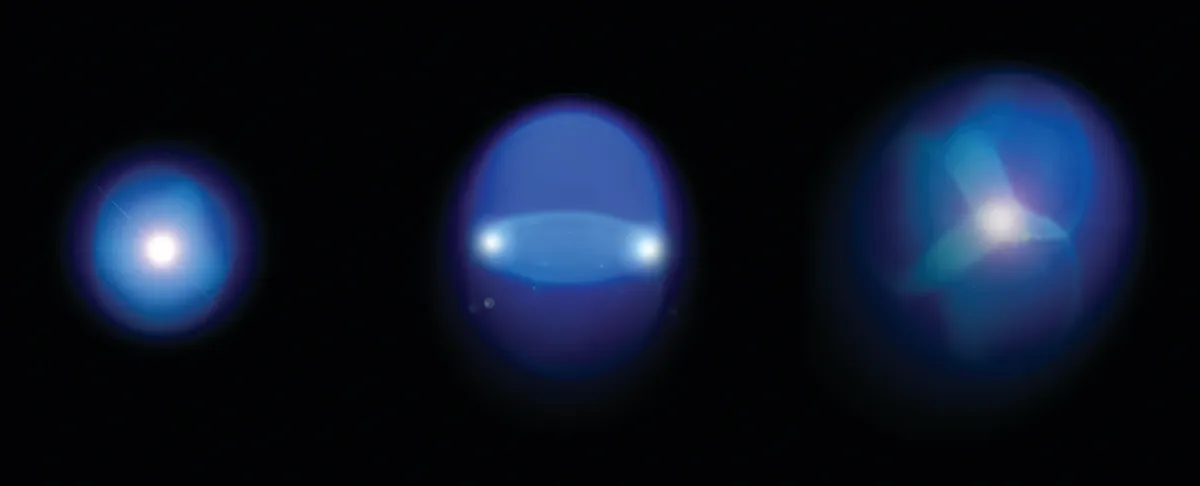Physicists at the University of Colorado have created tiny blobs of the bizarre liquid-like matter that filled the Universe milliseconds after the Big Bang.
The team created the so-called quark-gluon plasma by smashing packets of protons and neutrons into a much heavier gold atom in the PHENIX Detector particle collider at Brookhaven National Laboratory in Upton, New York. It is theorised that this matter filled the entire Universe shortly after the Big Bang when it was still too hot for particles to come together to make atoms.

The physicists discovered that the droplets of quark-gluon plasma behave in a liquid-like manner expanding to form different geometric patterns – circles, ellipses and triangles – depending on the type of particle used. Shooting the gold with a proton creates a circular pattern; shooting the gold with a deuteron, or proton-neutron pair, created an ellipse; while shooting the gold with a helium-3 atom, or two protons and a neutron, created a triangle.
“Imagine that you have two droplets that are expanding into a vacuum. If the two droplets are really close together, then as they’re expanding out, they run into each other and push against each other, and that’s what creates this pattern,” said Prof Jamie Nagle.
Further study of the process could help theorists better understand how the Universe’s original quark-gluon plasma cooled over time, giving birth to the first atoms in existence, they say.
Follow Science Focus onTwitter,Facebook, Instagramand Flipboard